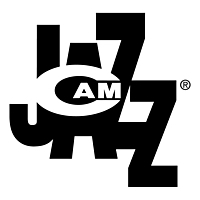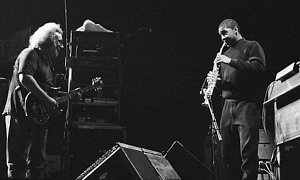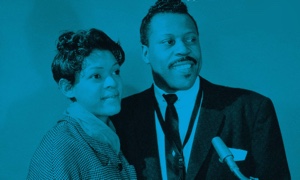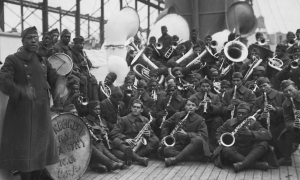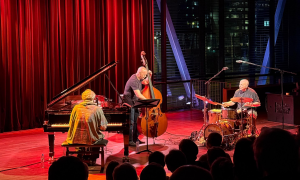Home » Jazz Articles » Building a Jazz Library » Joni Mitchell Jazzed: Ten Essential Mitchell Covers
Joni Mitchell Jazzed: Ten Essential Mitchell Covers

Courtesy David Redfern
Every time you change you have to be ready to experience massive rejection, you know, so you have to be strong...
—Joni Mitchell
The biggest stepping-stone came with The Hissing of Summer Lawns (1975), followed in remarkably quick succession by Hejira ( 1976)—graced by Jaco Pastorius—Don Juan's Reckless Daughter (1977), which featured four Weather Report members—marking the first of numerous collaborations with Wayne Shorter—and Mingus (1979), co-written with Charles Mingus. This latter album, once more hosting most of Weather Report, also brought John McLaughlin, Phil Woods, Eddie Gomez, Tony Williams, Herbie Hancock, Gerry Mulligan and Jan Hammer into Mitchell's orbit.
Yet despite Mitchell's affinity with jazz, her compositions—recorded by thousands of artists—have received relatively little attention from jazz musicians. The following list represents some of the best jazz interpretations of Mitchell's songs. If you have your own favorite we would love to know—just pop your thoughts in the comments section below.
Keith Jarrett: "All I Want"
With the exception of the odd jazz standard, Keith Jarrett's first seven albums had featured only one cover by a popular contemporary artist, namely Bob Dylan's folksy "My Back Pages." On The Mourning Of A Star (Atlantic, 1971) Jarrett doubled his pop tally with Joni Mitchell's "All I Want" from her much-loved album Blue (1971}, released less than three weeks before Jarrett entered the studio to record his own version.There is no messing about here with Mitchell's glorious melody; Jarrett delivers the tune almost verbatim. There are no complex harmonizations nor are there any solos, more is the pity. Jarrett adds flute-like recorder over his buoyant piano lines in a vibe somewhere between Vince Guaraldi and Monty Alexander, while Jarrett's trio regulars Paul Motian—on brushes—and double bassist Charlie Haden maintain an uncluttered, infectious groove. The trio starts to loosen up just as the fade out begins, leaving a sense of unfulfilled promise. Still, this is Jarrett at his sunniest.
Herbie Hancock: "The Jungle Line"
It was the head of A&R at Verve that suggested an album of Joni Mitchell covers to Herbie Hancock. Of course, Hancock already knew Mitchell's music well. The Chicagoan had played on Mingus (Asylum, 1979) and Joni Mitchell: Both Sides Now (Reprise, 2000). The core band of Lionel Loueke, Dave Holland, Wayne Shorter and Vinnie Colaiuta is joined by a starry cast of guest singers: Tina Turner; Norah Jones; Luciana Souza; and Corrine Bailey Ray. Maybe it was the high-profile names that swung River: The Joni Letters a Grammy Award for Album of the Year, because the results, with a couple of very notable exceptions, are less than the sum of their parts. "The Jungle Line" is arguably the standout track, with Leonard Cohen bringing a flinty, spoken-word gravitas (Larry Klein's idea) to Mitchell's bewitching lyrics while Hancock weaves his own improvised magic in the spaces.Boi Akih: "Cold Blue Steel And Sweet Fire"
Singer Monica Akihary and guitarist Niels Brouwer (aka Boi Akih) have forged a unique musical language that draws from blues, jazz, Indonesia folk influences—Akihary is of Indonesian descent—and beyond. No two albums sound alike. Circles in a Square Society (Bromo, 2012) marked a significant departure from their previous albums of original material with its interpretations of pop/folk songs of the '70s. Akihary's blues-inflected vocals mine the darkly poetic byways of Mitchell's beautifully crafted yet harrowing tale of drug addiction, which passes through desperation, burning desire, paranoia and the descent into the abyss.Akihary and Brouwer succeed in leaving their own indelible imprint on this brilliant outlier in Mitchell's songbook. Trombonist Walter Wierbos—all mute and slur—carves sympathetically woozy lines, while Kim Weemhoff on brushes treads lightly.
Colin Steele: "Tin Angel"
Scottish trumpeter Colin Steele dedicated an entire album to Mitchell's music. Joni (Marina Records, 2020) sees the quartet of Steele, pianist/arranger Dave Milligan, drummer Alyn Cosker and double bassist Calum Gurlay tackle songs both extremely well known and those less heralded. It is on one of the latter that we focus our attention here. From Mitchell's second album, Clouds (Reprise, 1969) "Tin Angel" represents one of Mitchell's most contemplative songs about love—here today, gone tomorrow.On this stripped-down interpretation for double bass and muted trumpet, Steele's brittle voicing responds to the fragile, ephemeral nature of love as reflected in Mitchell's lyrics. There is a hint of Miles Davis circa the noirish Ascenseur pour l'échafaud (Columbia, 1958) in Steele's muted trumpet playing that hint obliquely at the blues. Worth checking out too is Steele's version of "Hejira."
Ian Shaw: Night In The City
Another to record an entire album of Joni Mitchell's songs is Welsh singer Ian Shaw. The fourteen songs on Drawn To All Things (Linn, 2006)—the title comes from Mitchell's "Shadows and Light")—draw from a broad swathe of Mitchell's discography, from Songs To A Seagull (Reprise, 1968) to Taming the Tiger (Reprise, 1998). "Night In The City," from Mitchell's debut album, is given the swing treatment, with Shaw interjecting bursts of bubbly scatt. Nigel Hitchcock on tenor saxophone and pianist Tim Lapthorn both take lively solos, but the star of the show is Shaw—not for nothing is he widely considered as the UK's greatest jazz singer. In his delivery there are shades of Mark Murphy and Jon Hendricks, artists in whose company Shaw very much belongs.Jack DeJonette/Larry Grenadier/John Medeski/John Scofield: "Woodstock"
Joni Mitchell never made it to Woodstock, her management deciding that an appearance on the popular Dick Cavett Show that same weekend would be of greater benefit to her career than a slot at the now legendary festival. Her song inspired by the Woodstock festival has since attained iconic status and has been covered by more than 400 artists. Jazz versions, however, are few and far between. These four venerable jazz musicians tackled "Woodstock" on their album Hudson (Motéma Music, 2017). Grenadier and DeJohnette's gently coursing rhythms provide the bedrock while Medeski and Scofield stretch out, letting the melody guide their paths. A tasteful, rootsy rendition that stands up to repeat plays.Brad Mehldau: "Don't Interrupt The Sorrow"
Pianist Brad Mehldau is one of the great interpreters of contemporary song, working wonders with material by The Beatles, Nick Drake, Nirvana, Radiohead, Oasis, The Verve, Pink Floyd, Sufjan Stevens, Elliott Smith, and Paul Simon, among others. Mehldau has been inspired by Joni Mitchell's music before, playing "Roses Blue" solo, and "Marcie" in a duo with Chris Thile.This solo piano rendition of "Don't Interrupt The Sorrow" (from Mitchell's masterpiece The Hissing Of Summer Lawns (Asylum, 1975) appeared on A Tribute To Joni Mitchell (Nonesuch, 2007), an album that also features Elvis Costello, Emmylou Harris, Bjork, Sufjan Stevens, Prince, Caetano Veloso, K.D. Lang, and Cassandra Wilson. Mehldau is in a typically exploratory mood here, going where his muse takes him while all the time keeping the melody flickering. The mood is darker than on Mitchell's original, more brooding, but there is still a refreshing lightness of touch in Mehldau's playing. A persuasive display of shadows and light.
Caecilie Norby: "Man From Mars"
Like Joni Mitchell, who morphed from a solo folk singer to a jazz-influenced band leader able to attract the likes of Michael Brecker, Pat Metheny and Jaco Pastorius, Danish singer Caecilie Norby too has transitioned musically speaking, in her case from rock and pop to jazz. A Blue Note Recording artist, Norby has worked with some hefty A-listers herself, among whom Randy Brecker, John Scofield, Ray Brown and Billy Hart.Norby covered two Joni Mitchell songs on Sisters In Jazz (ACT, 2019), "Big Yellow Taxi" and "Man From Mars." The latter song, from Mitchell's curiously ambient sounding Taming The Tiger (Reprise, 1998) is a song about the pain of loss, in this case the loss of a cat. Mitchell wrote "Man For Mars" when her cat Nietzsche went missing. She has recounted how she spent 17 days writing the song. A day later Nietzsche returned.
Norby is joined by double bassist Lisa Wulff, drummer Dorota Piotrowska on brushes, trumpeter Hildegunn Øiseth, saxophonist Nicole Johänntgen, percussionist Marilyn Mazur and pianist Rita Marcotulli on an arrangement of personal stamp. There is something David Bowie-esque in Norby's atmospheric arrangement, with Marcotulli shining throughout.
Dave Douglas: "Roses Blue"
As one of the most progressive of contemporary jazz musicians it should perhaps come as no surprise that trumpeter Dave Douglas should make such a personal statement with this Joni Mitchell song from Clouds (Reprise, 1969). Mitchell's original lasts just under four minutes; Douglas says all that needs to be said in just under three—an economy dictated by the sprightly post-bop tempo and the fact that Douglas is the only musician of the quartet to solo.Vibrant support comes from bassist James Genus, drummer Billy Hart and pianist Bill Carrothers—this latter who would record the same song a decade later—with Miles Davis's mid-'60s combos springing to mind.
This is one of three Mitchell covers on Douglas' Moving Portrait (DIW, 1998), the others being "My Old Man" and "The Same Situation."
Paco Séry: "The Dry Cleaner from Des Moines"
Since moving to France from Ivory Coast in 1979, drummer Paco Séry has earned a reputation as one of the greatest of contemporary drummers, a reputation cemented with Nina Simone, Salif Keita, Manu Dibango and Eddy Louiss. Séry also spent a decade in the Joe Zawinul Syndicate and his version of "The Dry Cleaner from Des Moines" sounds as much a homage to the Austrian's long-running jazz-cum-world fusion band as it does to Mitchell, with electric bassist Hadrien Feraud playing Jaco Pastorius to keyboardist Cedric Duchemann's Zawinul.Vocalist Julie Fuchs sings with brio, while trumpeter Thomas Henning and saxophonist Rico Gaultier bring unison energy to an arrangement that stays fairly close to Charles Mingus' original score (to which Mitchell added lyrics). The ensuing album, Mingus (1979), was Mitchell's most overtly jazz-influenced album, and even with the presence of heavyweights such as Pastorius, Herbie Hancock, Wayne Shorter, Peter Erskine and Don Alias it sounds very much like a Mitchell album. Likewise, despite his heart-on-sleeve influences, Paco Séry 's upbeat, joyous interpretation of this Mitchell-Mingus collaboration could only have come from him.
Tags
Comments
PREVIOUS / NEXT
Support All About Jazz
 All About Jazz has been a pillar of jazz since 1995, championing it as an art form and, more importantly, supporting the musicians who make it. Our enduring commitment has made "AAJ" one of the most culturally important websites of its kind, read by hundreds of thousands of fans, musicians and industry figures every month.
All About Jazz has been a pillar of jazz since 1995, championing it as an art form and, more importantly, supporting the musicians who make it. Our enduring commitment has made "AAJ" one of the most culturally important websites of its kind, read by hundreds of thousands of fans, musicians and industry figures every month.








